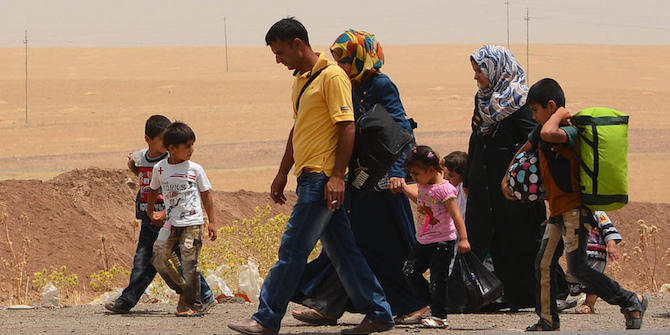
Research project funded by the James Madison Foundation awarded to Farah Shakir, Recep Onursal and Neophytos Loizides
The project aims to investigate how new post-conflict federations manage (or not) the return of IDPs (internally displaced people) and the restoration of multicultural communities. At the political level, there is a growing consensus among policymakers, international NGOs and IDP organizations themselves in favour of peaceful voluntary return. However, we know very little about the specific mechanisms that enable voluntary return, even though it matters a great deal for the durability of peace processes involving federal and power-sharing institutions. The project aims to cover this gap by establishing a global database of IDP returns in federal systems and a new series of publications and events on the topic.
Unlike refugees, internally displaced people (IDPs) have not crossed an internationally recognized border to find safety. While they may have fled for similar security or other reasons, IDPs remain in their own country often under the protection of authorities that might have caused or contributed to their own displacement. International law and the mandate of international organizations such as the UNHCR do not specifically cover IDPs and as a result these people are among the most vulnerable in the world. Post-conflict and federal studies provide contrasting approaches to the evaluation of IDP return prospects. On the one hand, most conflict specialists have seen ethnic federalism as detrimental to the right of return (Woodward, 1997; Kumar, 1997) while federal scholars themselves confront these critiques by pointing to the protection mechanisms entrenched and incentivized in federal systems (Morgan-Jones et al. 2020). Public opinion surveys conducted at the University of Kent (e.g. in Iraq and Bosnia) seem to validate the federalist thesis but more needs to be done to explore the pathways and micro-institutional foundations that empower IDP return in post-conflict federal systems.
To do so, the project introduces a theoretical framework in the study of durable returns highlighting the role of economic, psychological and security related factors commonly identified in the literature (Psaltis et al. 2020) as well as novel ones such as social capital and institutional design. The federal/institutional design hypotheses encompasses as set of constitutional/federal protections for IDPs such as property restitution and compensations, internal border and territorial readjustments as well as policing arrangements and electoral institutions enabling IDP mobilization and representation in federal systems (Anderson and Choudhry, 2015; Loizides, 2016). The findings will also contribute to the relevant literatures in anthropology, international development studies, psychology, political science, law and sociology, as well as to current policy debates.
The project is expected to be of wide interest to a range of scholars and practitioners including governments currently interested in supporting displaced persons and refugees but lacking the proper tools and evidence as to what works or not in related policy interventions. UNHCR (2020) reports that the global population of the forcedly displaced has reached an unprecedented 79.5 million persons (45.7 as IDPs). Despite the normative consensus prioritizing peaceful voluntary return, there is little empirical knowledge and understanding about how or why displaced persons make the decision to return to their pre-conflict homes and communities. The voluntary return of the displaced people has declined in the last decade despite more people seeking refuge. In other words, there are fewer options for IDPs and refugees in rebuilding their lives. UNHCR (2020: 11-12) reports that only 3.9 million refugees were able to return to their country of origin between 2010 and 2019 compared to almost 10 million refugees who returned home during the previous decade and more than 15 million two decades prior. If federal arrangements in the previous decades could account for some of the success or partial success stories a case could be made for supporting post-conflict federations; this project along with new research funded by the ERC at the University of Kent will help identify best practices to support IDPs in federal systems.